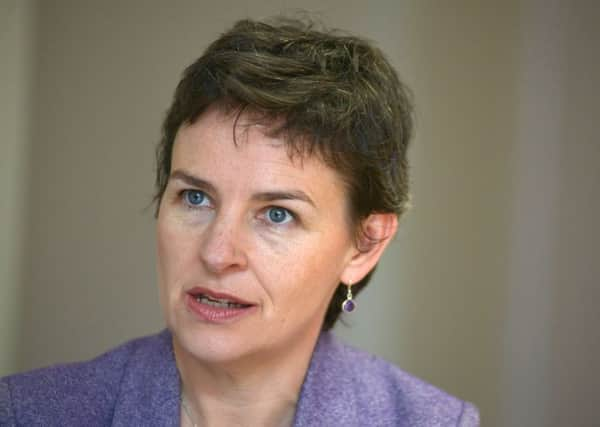MP calls for microbead ban to protect marine life


Microbeads commonly found in hundreds of bathroom products including shower gel and toothpaste are finding their way into the country’s most loved seafood, including crab, mussels and lobster.
Shocking evidence presented to MPs, who are calling for a ban on microbeads, shows that a plate of six oysters contains on average 50 ingested plastic particles and there are 36 particles per 100g portion of North Sea mussels.
Advertisement
Hide AdAdvertisement
Hide AdPuffins and other birds at Bempton Cliffs in the East Riding are also mistaking the small beads as fish eggs and some seabirds have been found to have so much plastic in their gut that it accounts for 10 per cent of their body weight.
Environmental Audit Committee Chair and Wakefield MP Mary Creagh said: “Microbeads have been used in products since the 1990s and this year 68 tonnes of them went into the sea.
“Consumers are revolted by the idea we are polluting the marine environment and are horrified that labelling isn’t more clear.
“The microbeads in scrubs, shower gels and toothpastes are an avoidable part of this plastic pollution problem.
Advertisement
Hide AdAdvertisement
Hide Ad“A single shower can result in 100,000 plastic particles entering the ocean.
“We need a full legal ban, preferably at an international level as pollution does not respect borders.
“If this isn’t possible after our vote to leave the EU, then the Government should introduce a national ban.
“The best way to reduce this pollution is to prevent plastic being flushed into the sea in the first place.”
Advertisement
Hide AdAdvertisement
Hide AdSo far large cosmetics companies have made voluntary commitments to phase out microbeads by 2020.
However, the committee found that a legislative ban would send a stronger message.
And Ms Creagh, who has chaired the committee since 2015, said she would like to see a national ban on microbeads by the end of 2017.